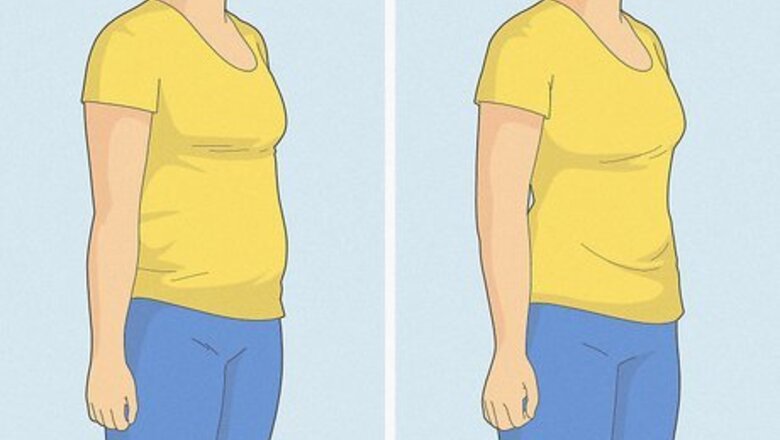
views
- Even if the scale doesn't indicate weight loss, you're likely losing belly fat if your clothes fit differently and your waist shrinks.
- When your body's in fat-burning mode, your mood may improve and you may become more mentally alert; exercise and healthy foods can boost cognition and mental health.
- Weighing yourself can help you keep track of your weight loss, but remember your weight fluctuates throughout the day, and muscle weighs more than fat.
Signs You're Losing Stomach Fat
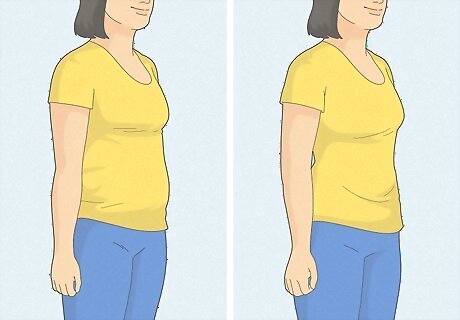
Your clothes fit differently. Losing weight can be a slow process, and you may not notice your stomach slimming down right away. But as you slim down—even slowly—your clothes will start to fit different: they may look looser, or clothes you thought you’d outgrown may suddenly fit like a glove. Keep in mind you can’t target weight loss to a specific area, so if you’re losing fat in your belly, congrats! That means you’re losing it everywhere.
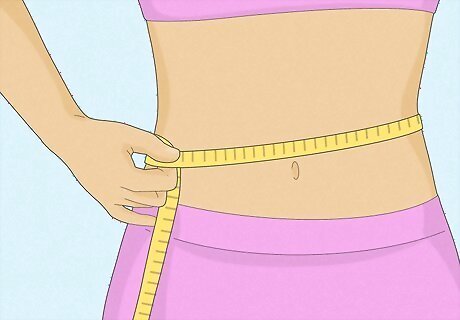
Your waist may be smaller. While the scale won’t always give you an accurate idea of how much weight you’re losing or how fit you are, if your waist is smaller, it’s a sign you’ve lost some belly fat. Not only that, but a smaller waistline is an indicator of improved cardiovascular health: a shrinking waistline has been linked to a lower risk of cardiovascular issues. Measuring your waist regularly can help you track your weight loss progress. Just be sure to measure your waist at the same time of day to minimize fluctuations, and use a soft measuring tape to get an accurate measurement. You can still measure your waist without soft tape: just wrap a piece of string around your waist, mark how long around your waist is on the string, and then measure it against a yard stick or ruler. Try to measure your waist in the morning before breakfast: your waist size changes throughout the day depending on what you eat and drink, and measuring your waist when it's empty will give you the most accurate measurement. Remember that as your belly becomes more muscular and toned, it may actually get a bit bigger, so remember that “smaller” doesn’t always equate to “healthier.”
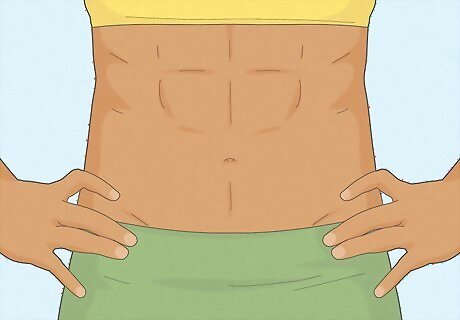
Your belly might be more defined. If you’re shedding pounds and working out, your body composition is likely to change. You may appear more muscular and defined all over—and that includes your stomach. You may notice your abs are slightly more chiseled than they were a few weeks ago. Consider taking regular photos of your body to track your weight loss journey. You may not notice small changes as they happen, but weekly photos can help you visualize your progress and motivate you to keep going. While you can’t target weight loss to a specific area, you can build up your stomach muscles with targeted strength building exercises: to really define your abs, try doing planks, sit-ups, or crunches.
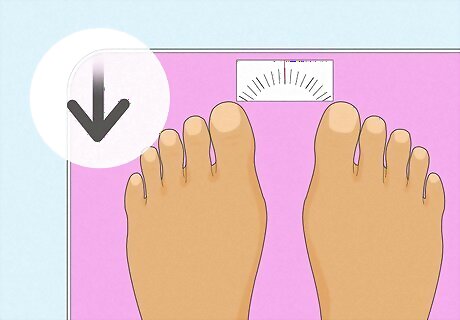
You may weigh less. An obvious answer, but it has to be said: if you notice the number on the scale dropping, you’re shedding pounds. If it’s only a difference of a few pounds at first, don’t worry too much: most people aim to lose 1 or 2 pounds a week, an achievable goal that’s easier (and healthier) to maintain for the long term. Remember, the scale can be a reliable way to keep track of weight loss and fitness, but your scale merely reflects your relationship to gravity; it won’t account for weight gain due to muscle development.
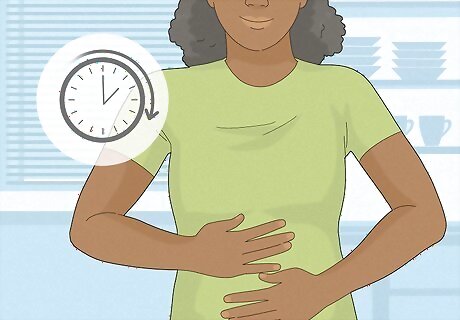
You're less hungry. If you've changed up your diet to include more protein and less fat and carbs, you may notice you're snacking less than you used to. The amino acids in protein will keep you fuller for longer, meaning you're less likely to overeat. So if you're not sure your new fitness regimen is working, if you're feeling less hungry, there's a good chance it is. Data suggests plant-based protein may keep you feeling full longer than animal-based proteins, so stock up on plenty of tofu, chickpeas, lentils, and other plant-derived protein-rich goodies!
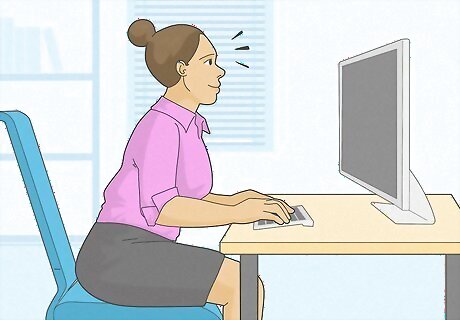
You have more energy. Regular exercise and a healthy diet rich in fruits, veggies, whole grains, and lean protein will give you more energy over time. So even though those first few workouts might be exhausting, they’ll pay off. Say goodbye to mid-afternoon slumps! If you’re feeling more energized, it’s a good sign your body's in fat-burning mode, even if the scale doesn't reflect it.

You’re mentally sharper. Suddenly feeling like you could be the next Jeopardy! champ? Getting in shape doesn’t just give you more physical stamina—it can also make you mentally sharper and more alert. So if you’re not sure your new diet and exercise regimen is doing the trick, pay attention to your brain health: if your memory and attention span have improved lately, it could be a sign you’re becoming fitter—even if you don’t notice the physical results just yet. Regular exercise has been proven to boost your memory and mental acuity, as well as lower your risk of cognitive decline. Enjoying a healthy diet rich in fatty fish, berries, leafy greens, tea and coffee, and walnuts has also been linked to better brainpower.

You’re feeling happier. Exercise and a healthy diet have been linked again and again to improved mental health. So if you’re feeling more peaceful and optimistic, odds are it’s because you’re taking care of yourself. Other factors commonly linked to diet and exercise may be boosting your mental health as well. For instance, creating and sticking to a routine has been shown to improve mental health. If you work out with a friend, this could also be a boon to your emotional wellbeing: regular socializing is linked to increased mental health.

Your body is stronger. If you’re working out regularly, you’ll likely notice that you feel stronger and more capable—maybe you used to have to pause halfway up the stairs to catch your breath, and now you’re jogging up the stairs in seconds. Your physical appearance won’t always reflect how far you’ve come from the get-go, but your abilities will likely speak for themselves.
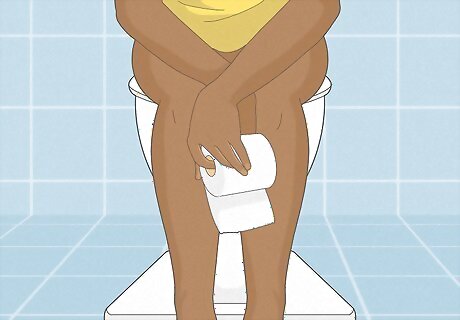
You’re using the restroom more or less often. A new diet can affect your bathroom habits. Depending on what you’re eating, you may have more or fewer bowel movements. For instance, a diet higher in protein (like a keto diet) could leave you going to the bathroom less frequently, while a diet high in leafy greens may make you have more bowel movements. There’s no “right” number of times to use the restroom a day—some people feel best with 2 or 3 bowel movements a day, while others don’t need to go more than 3 times a week. If your bathroom habits interfere with your daily life, though, or if you’re having trouble controlling your bowel movements, consider speaking to your doctor or a nutritionist.
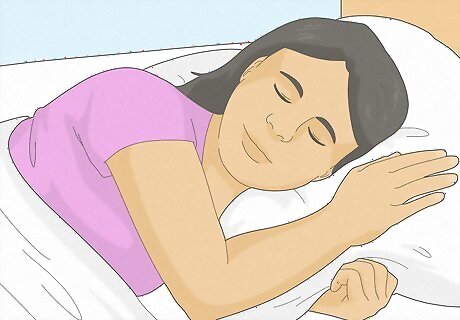
You’re snoring less. If you suffer from sleep apnea or consistently snore through the night, you may notice that this problem fades with regular exercise and a healthy diet. Excess weight around your middle or neck could cause you to struggle to breathe properly while lying down, so if you’re snoring less, you may have lost some weight.

Your blood pressure is lower. Excess weight as well as stress can contribute to high blood pressure—and regular exercise and mindful eating can improve both. So if your blood pressure is lower than it used to be, it may be because you’ve lost some weight and are reaping the rewards of your fitness plan.
How long does it take to see results from dieting and working out?

It depends on your body type and current fitness level. There’s no set time by which you’ll start to notice results. Your age, sex, current weight and fitness level, genetic background, and diet and exercise plan all have an effect on how quickly you’ll see changes to your physical appearance. The more fat you have to lose, the quicker you'll lose it through regular exercising and dieting; the less weight you have to spare, however, the harder it'll be to burn it off. Studies suggest most people have to lose about 8 or 9 pounds (or 3.5-4 kg) before their weight loss is noticeable to others. Most people aim to lose 1-2 pounds a week; if you follow this timeline, you may lose a noticeable amount of weight in about a month. However, you’ll likely notice your body slimming down or becoming more toned sooner than that, simply because you’re more aware of your own body than others are.
Is it useful to weigh yourself?
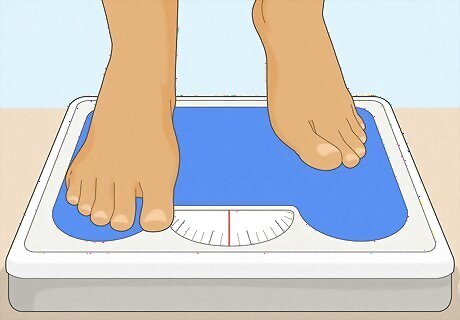
Weighing yourself can help you track your weight loss. It’s by no means essential to weigh yourself every day or even at all to get in shape. For some people, though, an objective indicator of their progress can be useful. Some studies show that daily weigh-ins led to long-term weight loss.

Weighing yourself won’t give you the full picture. While weighing yourself regularly can help you keep quantifiable track of your fitness journey, it only accounts for how heavy your body is—not how much fat you have. Because muscle weighs more than fat, you may see the number on the scale go up as you become more fit. Other factors that may contribute to a fluctuation in your weight include the time of day that you weigh yourself. Weighing yourself right after a meal, for instance, can cause you to weigh more than you’re expecting. Experts recommend weighing yourself at the same time every day or once or twice a week.
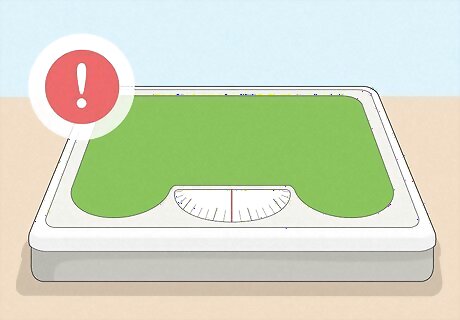
For some people, weighing too frequently can be discouraging. The numbers may not lie, exactly, but that doesn’t mean they’re always accurate. The average person’s body weight will fluctuate by about 5 whole pounds every time they weigh in—which doesn’t really mean much in the long term, but it can be discouraging, especially if you struggle with body image issues. While some studies suggest weighing yourself daily can help you lose weight, other studies indicate the opposite could be true. Studies suggest women may be more discouraged by daily weighing-in than men: frequent weighing was linked to higher rates of depression, lower self-esteem, and more concern about their weight. Ultimately, whether to weigh yourself is up to you! If you feel encouraged and motivated by weighing in, then do so; but if regular weigh-ins cause unnecessary stress and insecurity, just focus on eating well and exercising regularly.
How the Body Burns Fat
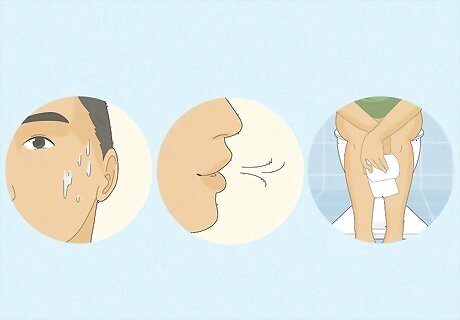
In a calorie deficit, you expel fat through sweat, breath, and pee. As your body utilizes energy—for resting, eating, and being active—your fat cells begin to shrink. The lungs are the main organ through which you expel fat: about 84% of fat burned is breathed out as carbon dioxide. There are 2 main types of fat: white (or visceral) adipose tissue and brown adipose tissue. Brown adipose is considered "good" fat: it keeps the body warm, regulates blood sugar and insulin levels, burns calories, and boosts metabolism. The pesky fat that accumulates on the surface of the skin (such as on your belly) and around organs is white adipose. White fat protects your organs and gives you energy, but too much of it can pose health risks like diabetes or liver disease. When you take in more calories than you burn, that extra fat is stored in adipose tissue all around your body. When you lose more calories than you take in, your body will turn to fat reserves for energy and burn them.


















Comments
0 comment